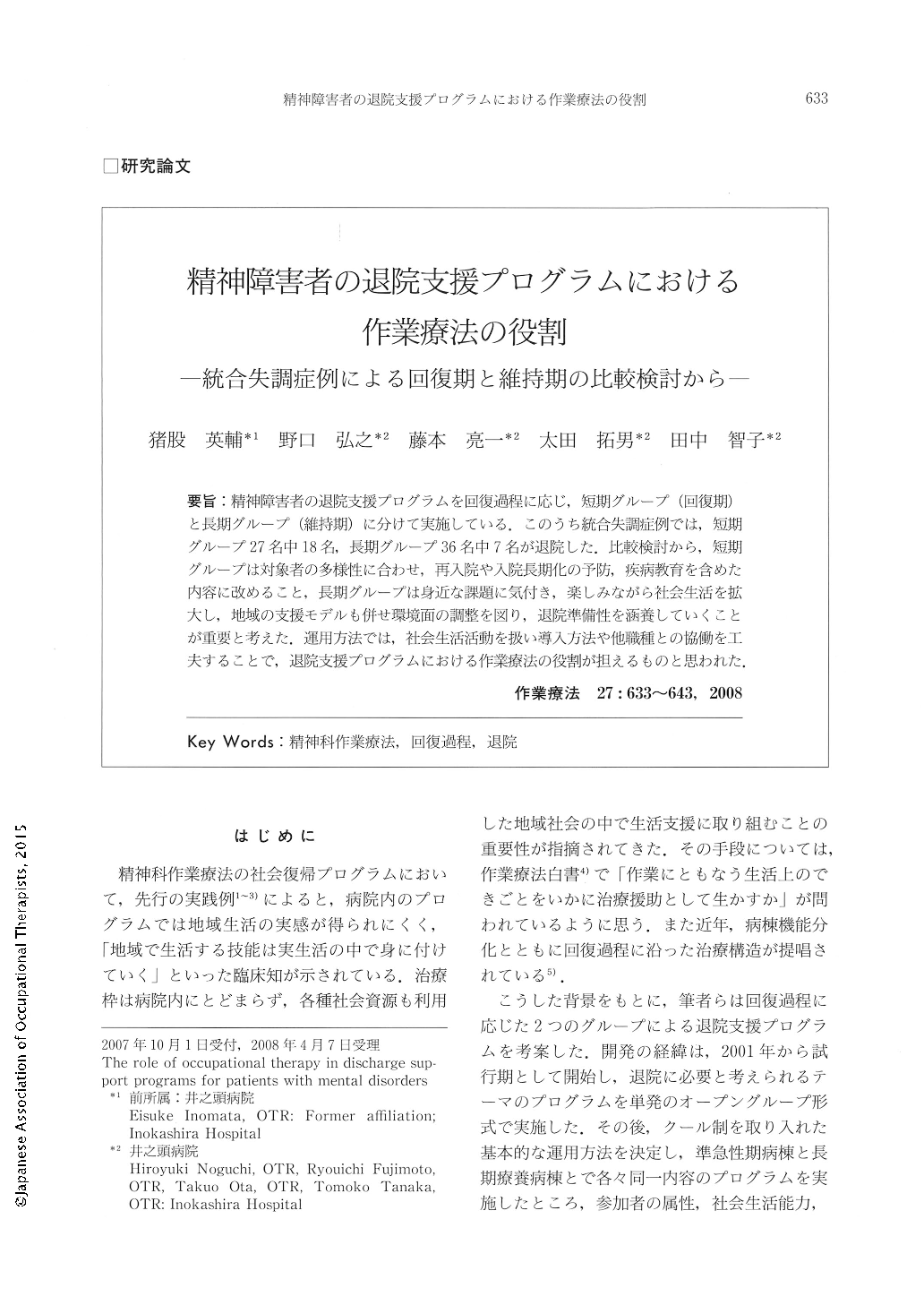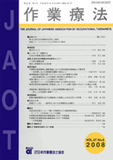Japanese
English
- 販売していません
- Abstract 文献概要
- 1ページ目 Look Inside
- 参考文献 Reference
- サイト内被引用 Cited by
要旨:精神障害者の退院支援プログラムを回復過程に応じ,短期グループ(回復期)と長期グループ(維持期)に分けて実施している.このうち統合失調症例では,短期グループ27名中18名,長期グループ36名中7名が退院した.比較検討から,短期グループは対象者の多様性に合わせ,再入院や入院長期化の予防,疾病教育を含めた内容に改めること,長期グループは身近な課題に気付き,楽しみながら社会生活を拡大し,地域の支援モデルも併せ環境面の調整を図り,退院準備性を涵養していくことが重要と考えた.運用方法では,社会生活活動を扱い導入方法や他職種との協働を工夫することで,退院支援プログラムにおける作業療法の役割が担えるものと思われた.
In the implementation of our discharge support program, patients with mental disorders were divided into 2 groups depending on their condition in the recovery process: a short-term group (STG) and a long-term group (LTG). In cases of schizophrenia, 18 of the 27 STG subjects and 7 of the 36 LTG subjects were discharged.
Based on comparisons of the results of the STG and LTG programs, we have the following suggestions:
In the case of the STG, a mix of various types of people in a group allows freedom to select the type of session, prevents re-admission and long-term hospitalization and provides illness education.
LTG cultivated an awareness of discharge, and experienced reduced anxiety. In addition, the group displayed an increased interest and enjoyment in social life outside of the hospital, and used the support system in the local community.
In conclusion, occupational therapy is very useful in promoting hospital discharge for patients with mental disorders by using social activities and encouraging cooperation with other programs.

Copyright © 2008, Japanese Association of Occupational Therapists. All rights reserved.


